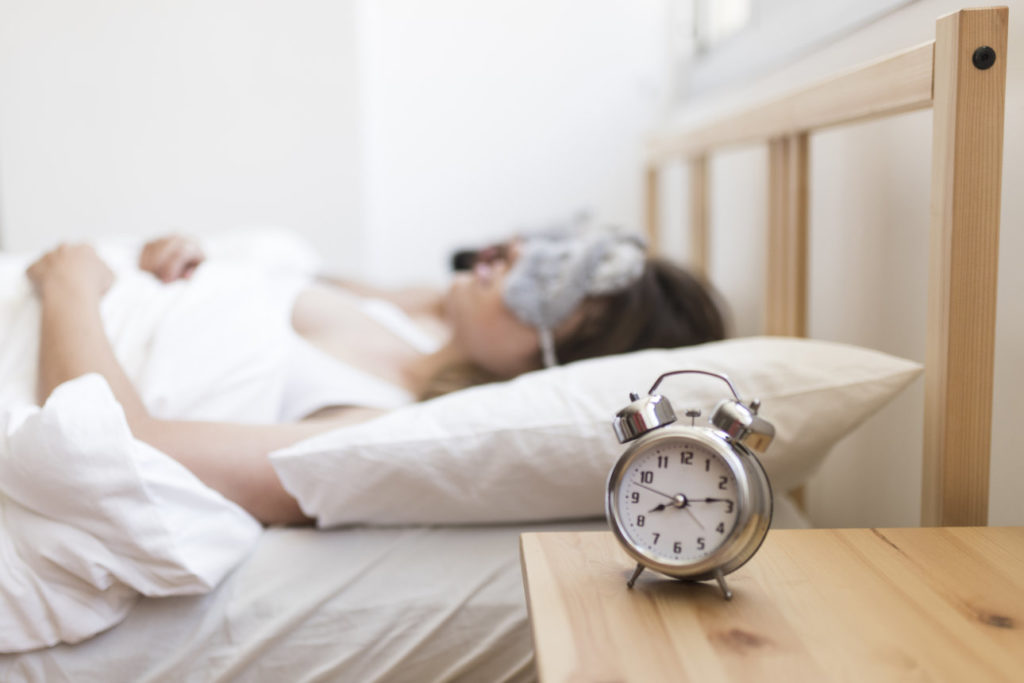When you’re in pursuit of living a healthier life, you have to know good sleep is just as important as eating well and exercising regularly. These three come hand-in-hand to have a holistic approach to your health. While these may sound simple, they’re often easier said than done as stressors and busy schedules may often get in the way of good sleep. When it persists, it could lead to serious detrimental effects.
Have A Satisfying Sleep
If there’s anything you can give yourself this 2021, it’s quality sleep. Your body needs it to recharge after a long day. While you may think sleep deprivation doesn’t harm you, it’s only going to affect your sleep quality the next day when you easily feel drowsy and tired. Not only are you going to become lazy, but your mood will also be altered negatively.
Say goodbye to restless nights by applying the following changes in your life:
1. Exercise
Engaging in regular exercise is one of the constant tips you may have heard of to put your health in optimum condition. With exercise, you’re able to hit two birds with one stone because you’re not only trimming down and losing weight; you’re also enabling yourself to sleep better at night.
When you exercise, your body could boost the effects of sleep hormones like melatonin. However, be sure you time your workouts strategically because if they’re too close to bedtime, it can also be overstimulating. Instead of helping you rest better, it’ll keep you awake and alert.
When it comes to exercise, here are some insights to guide you:
Generally, the more vigorous your exercise routine is, the more powerful are its benefits in terms of sleeping.
Be patient with building an exercise routine you can stick with because results aren’t guaranteed overnight. It’ll take time for your body to get used to it, but it can help you sleep better.

2. Increase Bright Light Exposure During Daytime
Bright light exposure can also help you sleep better, but make sure it’s limited only during the daytime. Otherwise, if it’s right before you sleep, it can stimulate your mind to keep you awake.
Rather than expose yourself to bright light at night, do this instead in the morning as this can help your body get in sync with its natural circadian rhythm. This cycle is important to have correctly because it tells your body when it’s time to stay awake or go to bed.
Here are some tips you can apply to reduce your bright light exposure at night:
- Keep the lights down even when you need to move around or go to the bathroom. Use a night light or a flashlight, rather than switching on the lights in the room.
- Avoid using your gadgets or watching TV 1-2 hours before bedtime because the blue light emissions will keep you up rather than make you sleepy. If you want to binge-watch movies, do this earlier in the evening or late in the afternoon. You could follow this guide when streaming.
- Keep your room dark when it’s time to sleep. This doesn’t just mean switching off the lights but also having black-out curtains.
- If you have an opportunity to work in areas where you can have more natural light, try to be in that setup. Open your windows or go for a walk during your breaks. This can give you much-needed exposure to the sun, plus it’s also an opportunity to rest your mind.
3. Reserve The Bed For Sleeping
Among all other things you can do in bed, don’t forget it’s for sleeping primarily. Refrain from doing any other things in bed that doesn’t help you relax. This includes watching TV at night, responding to work-related calls, working, browsing through emails, and doing school work, among others.
The bed should be a place to stimulate your senses to sleep, not to stay awake. Have your bed reserved for your rest.
4. Avoid Caffeine Late In The Day
Coffee perks you up in the morning, and if it makes you become during the day, it’ll be the same during the night.
If you’re the type of person who has gotten used to drinking multiple cups of coffee throughout the day, make sure you get your last cup at least six hours before bedtime. This means on average, it shouldn’t be anywhere beyond 3:00 pm.
In case you crave coffee beyond those hours because it has become your habit, you may want to consider decaffeinated coffee instead.
5. Keep Your Room Comfortable
If your room is filled with clutter, chances are your stuff might be affecting your area’s capacity to provide better sleep. A good idea could be to visit some bedroom showrooms near you to find the best beds to improve the quality of your sleep. Remember, the television isn’t the only distraction in a bedroom because the overall ambiance also has a significant effect. This is why hotel rooms are so comfortable because the ambiance is set to create sleepiness right from the moment you walk in.
Take a good look around your room and look for clutters that could’ve unknowingly been stressing you out. Clean your room and give it a makeover, and you’ll eventually start seeing better results.

6. Reduce Daytime Naps
Not everyone has the luxury of napping during the daytime because of their work schedule. However, if you’re one of those who has this privilege, be smart about your naptime. Otherwise, you may be altering your sleeping patterns in the evening.
Make sure you keep your naps around 20 or 30 minutes only because anything beyond will keep you awake at night. Also, keep your naps within the earlier hours of the afternoon.
Conclusion
If you’ve gotten tired of tossing and turning at night and counting sheep doesn’t work for you, then it’s worth practicing the tips enumerated above for better sleep. You don’t have to suffer through difficulty anymore, especially when you know consistent sleep deprivation has negative side effects on your health in the long run.
If you think you have a serious sleep condition, don’t hesitate to reach out to your doctor. Snoring and difficulty in breathing can be symptoms of an underlying condition such as obstructive sleep apnea. Don’t worry, though. These conditions can be treated with proper medication and continuous positive airway pressure (CPAP) therapy. The latter involves using a CPAP machine to deliver oxygenated air into your airways to normalize your breathing during sleep.
By considering the ideas mentioned, sleeping well no longer has to feel like an improbable feat to accomplish.
